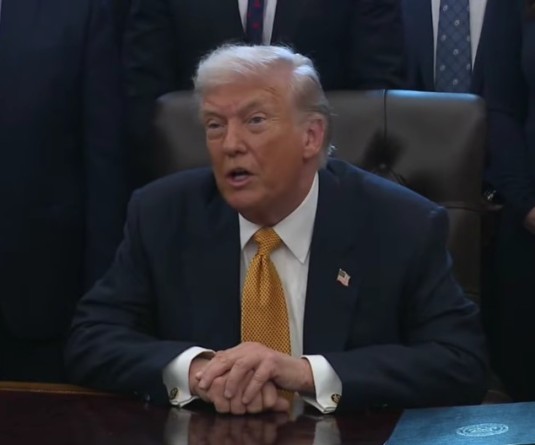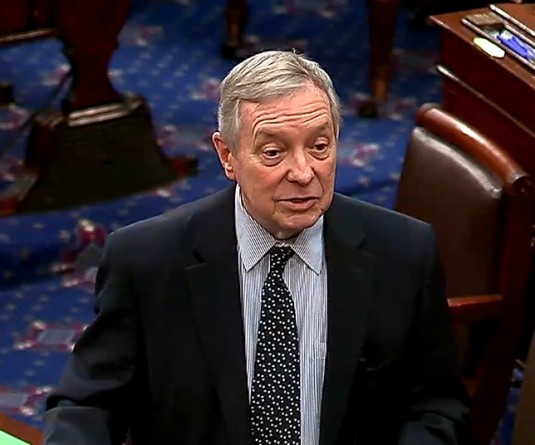
A montage of Belgium’s Flemish speaking newspaper front pages published on Thursday, February 17, marking 249th day of political crisis in Belgium. (AP Photo)
BRUSSELS, February 17 (AP): Many would see it as a humiliation, but for Belgium it's an excuse for a party: the country's citizens are marking 249 days without a government Thursday, a figure that they are treating as a world record.
Day to day the crisis pits the leaders of 6 million Dutch-speaking Flemings against those of 4.5 million French speakers, but people from across the country are putting aside their differences to celebrate the occasion.
In Dutch-speaking Ghent, organizers hope 249 people will strip naked to mark the days of the crisis as part of a party expected to draw thousands. There will be free fries, Belgium's beloved national dish, in Leuven and lots of Belgian beer in the French-speaking student town of Louvain-la-Neuve.
"Finally world champion" the usually serious De Standaard headlined its Thursday edition, tongue firmly in cheek. "Of course it is serious that we have no federal government," said Kris Peeters, the minister president of Flanders in an interview. "But on the other hand, I appreciate very much the humor of certain actions."
It is arguable whether 249 really is the record. Iraq took 249 days to get the outlines of a government agreement last year, but the approval of that government took a further 40 days. Still, the way things are going, Belgium will have little problem claiming the record whichever standard is used.
After general elections on June 13 last year, Belgium's major parties began talks to force through the biggest constitutional reform in decades to keep both linguistic groups happy. But since their interests are often diametrically opposed, they ran into one deadlock after another.
King Albert had to appoint and accept the resignation of one go-between after another as the major parties refused to move far from their pre-election position. It is a process which continues to this day. The chances of success for the current negotiator, caretaker Finance Minister Didier Reynders, are seen as slim and the specter of new elections to break the deadlock are looming.
"There is a moral duty to be optimistic. And that is very important also in politics," said Peeters. Beyond optimism, Belgians have also made it a moral duty to make fun of themselves.
"We never take ourselves seriously. We are the country of the Smurfs, of Tintin, of Rene Magritte and surrealism. So it is a country that, compared with England or France, we dare to make fun of ourselves," said Brussels politician Luckas Vander Taelen.
Along with many, the legislator in the Flemish Parliament takes a rather soothing view of the endlessly winding search for a government.
"In any country in the world where two peoples live on the same territory, there are always problems. And mostly these problems are solved with a war. And in Belgium we have a history of 180 years without one casualty," he said. "It might be boring, but it is better than a civil war."
At the heart of the political deadlock is an attempt to broker a new constitution with increased regional autonomy to reflect that the two language communities have increasingly grown apart. Richer Flanders wants as much autonomy as possible, while the poorer Francophone region wants to hold on to a much larger sense of national unity which also guarantees more financial solidarity.
Nevertheless, Belgium remains one of the wealthiest nations in the world, giving people the luxury to take things with a chuckle.
"At the end of the day we know we are a very, very happy people and that this is a very happy country. We might have some political problems, but then again, we go home, we have nice homes, fantastic social security, medical care, excellent schools," said Vander Taelen.
But financial analysts have been looking with an increasingly worried eye toward Belgium. "Concerns about Belgium's large public debt-to-GDP ratio, the third largest in the region, will probably not abate," Capital Economics wrote in an assessment this week.
King Albert has already tasked the caretaker government of acting Prime Minister Yves Leterme to take special measures to safeguard the economic stability of the country for some time to come.
On Thursday, though, all thoughts of problems to come were put aside. There was a party going on.
"After that, there is another day. After you have the world record, there is the world record-plus-one, and then you have to start negotiating," Vander Taelen said. "It takes time. A world record is not a shame," he said.
Day to day the crisis pits the leaders of 6 million Dutch-speaking Flemings against those of 4.5 million French speakers, but people from across the country are putting aside their differences to celebrate the occasion.
In Dutch-speaking Ghent, organizers hope 249 people will strip naked to mark the days of the crisis as part of a party expected to draw thousands. There will be free fries, Belgium's beloved national dish, in Leuven and lots of Belgian beer in the French-speaking student town of Louvain-la-Neuve.
"Finally world champion" the usually serious De Standaard headlined its Thursday edition, tongue firmly in cheek. "Of course it is serious that we have no federal government," said Kris Peeters, the minister president of Flanders in an interview. "But on the other hand, I appreciate very much the humor of certain actions."
It is arguable whether 249 really is the record. Iraq took 249 days to get the outlines of a government agreement last year, but the approval of that government took a further 40 days. Still, the way things are going, Belgium will have little problem claiming the record whichever standard is used.
After general elections on June 13 last year, Belgium's major parties began talks to force through the biggest constitutional reform in decades to keep both linguistic groups happy. But since their interests are often diametrically opposed, they ran into one deadlock after another.
King Albert had to appoint and accept the resignation of one go-between after another as the major parties refused to move far from their pre-election position. It is a process which continues to this day. The chances of success for the current negotiator, caretaker Finance Minister Didier Reynders, are seen as slim and the specter of new elections to break the deadlock are looming.
"There is a moral duty to be optimistic. And that is very important also in politics," said Peeters. Beyond optimism, Belgians have also made it a moral duty to make fun of themselves.
"We never take ourselves seriously. We are the country of the Smurfs, of Tintin, of Rene Magritte and surrealism. So it is a country that, compared with England or France, we dare to make fun of ourselves," said Brussels politician Luckas Vander Taelen.
Along with many, the legislator in the Flemish Parliament takes a rather soothing view of the endlessly winding search for a government.
"In any country in the world where two peoples live on the same territory, there are always problems. And mostly these problems are solved with a war. And in Belgium we have a history of 180 years without one casualty," he said. "It might be boring, but it is better than a civil war."
At the heart of the political deadlock is an attempt to broker a new constitution with increased regional autonomy to reflect that the two language communities have increasingly grown apart. Richer Flanders wants as much autonomy as possible, while the poorer Francophone region wants to hold on to a much larger sense of national unity which also guarantees more financial solidarity.
Nevertheless, Belgium remains one of the wealthiest nations in the world, giving people the luxury to take things with a chuckle.
"At the end of the day we know we are a very, very happy people and that this is a very happy country. We might have some political problems, but then again, we go home, we have nice homes, fantastic social security, medical care, excellent schools," said Vander Taelen.
But financial analysts have been looking with an increasingly worried eye toward Belgium. "Concerns about Belgium's large public debt-to-GDP ratio, the third largest in the region, will probably not abate," Capital Economics wrote in an assessment this week.
King Albert has already tasked the caretaker government of acting Prime Minister Yves Leterme to take special measures to safeguard the economic stability of the country for some time to come.
On Thursday, though, all thoughts of problems to come were put aside. There was a party going on.
"After that, there is another day. After you have the world record, there is the world record-plus-one, and then you have to start negotiating," Vander Taelen said. "It takes time. A world record is not a shame," he said.






